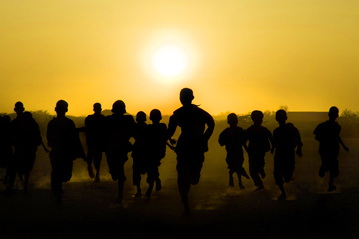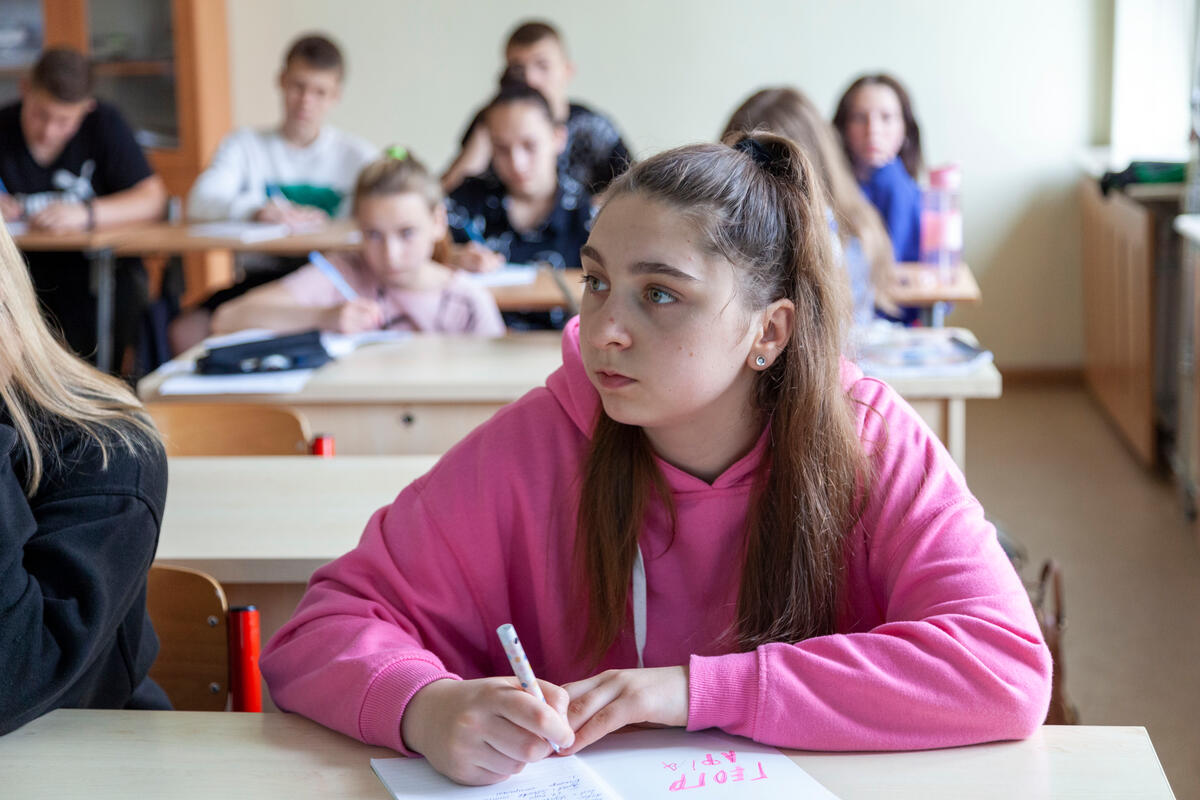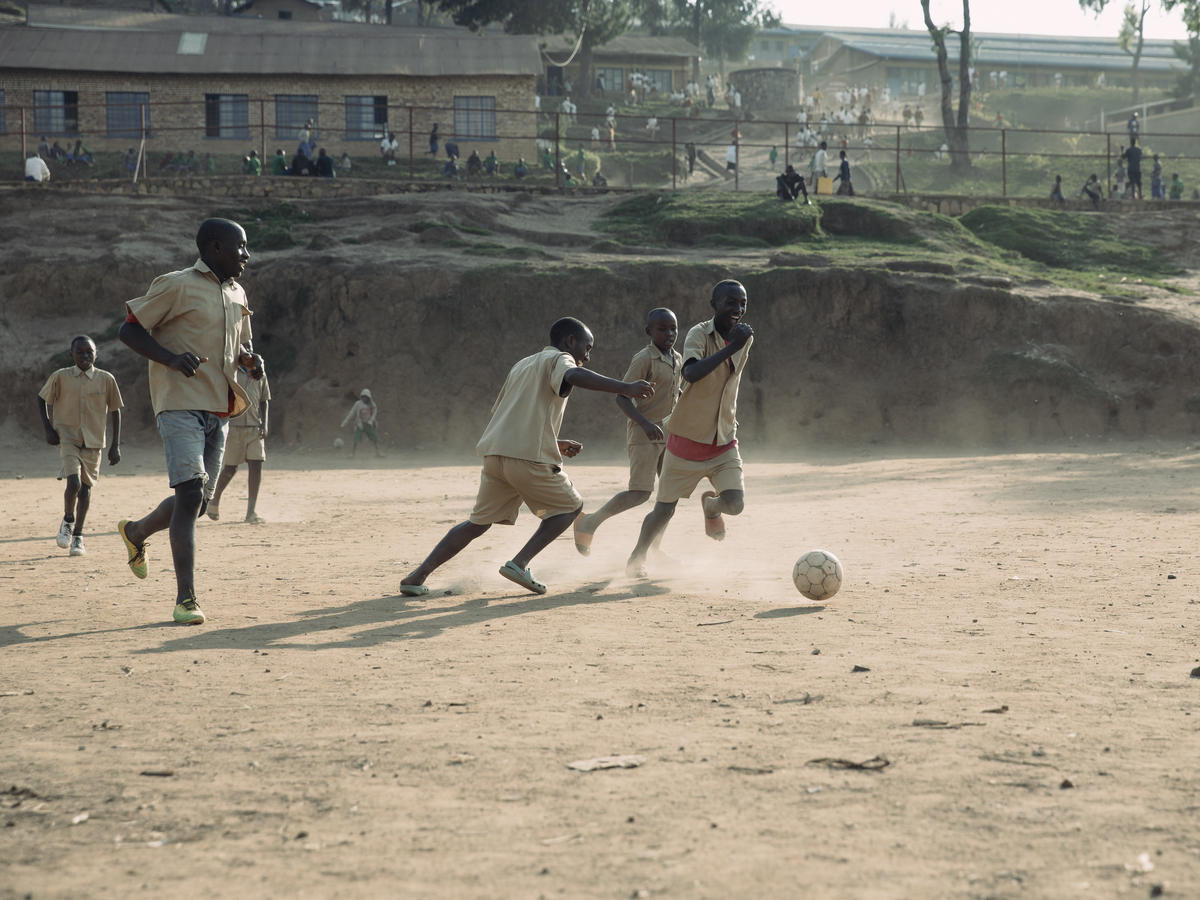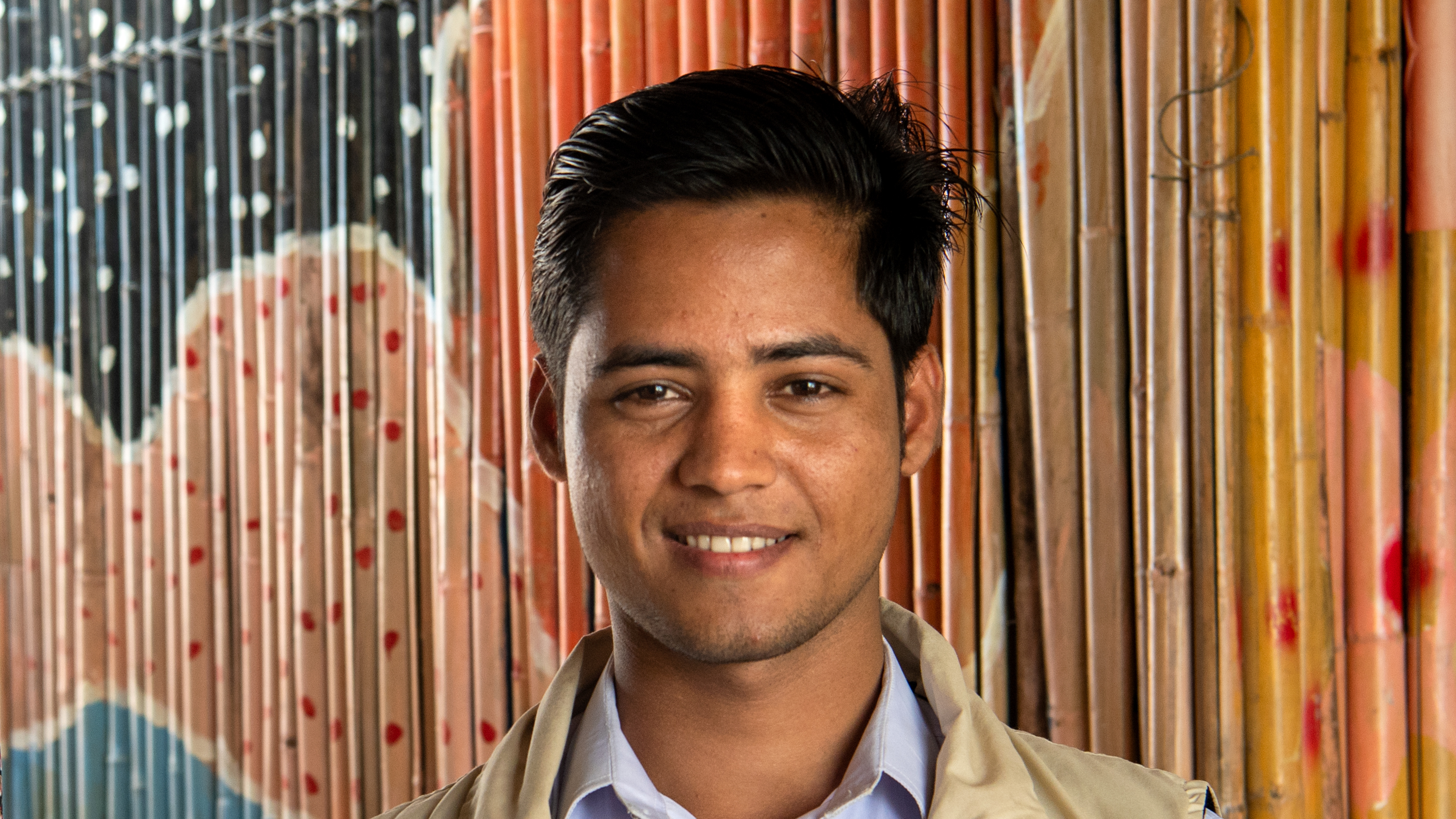Aid worker calls for action to protect child "witches" from abuse
Aid worker calls for action to protect child "witches" from abuse

GENEVA, April 8 (UNHCR) - Demonic possession, witchcraft and the occult are not the first things that spring to mind in a debate on refugees. But violence related to witchcraft accusations sometimes results in human rights abuses, forced displacement and human trafficking, according to a British aid worker.
Gary Foxcroft, programme director of Stepping Stones Nigeria, told a recent panel discussion organized by the UN refugee agency that belief in spirits and witchcraft is widespread in many parts of the world.
"These beliefs by themselves are not a protection concern. They only become so when they lead to abuse and human rights violations," said Foxcroft, whose organization works with children in Nigeria who have been physically and mentally abused for allegedly being sorcerers and witches.
The results of being accused of witchcraft can be horrific: suspected witches are often beaten up and subjected to appalling treatment by their parents or relatives, who believe they are responsible for any ills befalling their family or community.
Exorcism rituals and trials by ordeal to determine the guilt or innocence of suspected witches are often brutal and sometimes result in the death of the child. In extreme cases, children have been starved, scalded with hot oil or water, forced to sit on an open fire or had nails hammered into their skulls.
"Once a child has been stigmatized as a witch," Foxcroft explained, "he or she is rejected by their family and community."
Some religious practitioners make a living from exorcising alleged witches and charging exorbitant fees to those who request the ritual. In Foxcroft's experience, the most vulnerable members of society - children and the elderly - are often the victims of these accusations.
He said that women are more likely to be accused of dabbling in the occult than men. In some African countries, such as Tanzania, albinos have been victims of ritual murders because their body parts are believed to possess supernatural powers.
Although normally associated with African countries, violence related to witchcraft allegations has been reported elsewhere in the world. In the United Kingdom, for example, cases of witchcraft-related child abuse and killings have made headlines in recent years.
In 2000, Victoria Climbié, an eight-year-old child from Côte d'Ivoire, was abused and murdered by her relatives because they believed she was possessed by evil spirits.
A year later, the torso of an African boy, known only as Adam, was found floating in the River Thames. He is believed to have been the victim of a ritual killing. In 2005, three adults were found guilty of child cruelty after abusing "Child B" for months for being a "witch."
A recent research paper commissioned by UNHCR examined the link between witchcraft accusations and forced displacement. "An extensive literature review of journal articles, UNHCR internal documents and newspapers has shown that witchcraft accusations lead to violence and persecution in locations throughout the world," the paper said.
UNHCR Resettlement Officer Jill Schnoebelen, author of the paper, found that "workers at international organizations and non-governmental organizations must be aware of the tenacity of witchcraft beliefs, the very real threat they can create for individuals, and be willing to provide protection through monitoring, relocation and awareness-raising campaigns."
Jeff Crisp, head of the refugee agency's Policy Development and Evaluation Service, noted that in some countries, "accusations of witchcraft constitute some of the most serious refugee protection problems encountered by UNHCR."
Despite the seriousness of the problem and its global scale, experts such as Foxcroft remain optimistic that witchcraft-related violence can be tackled through a combination of education, public awareness campaigns and legislation. He has called for a global conference on witchcraft-related abuse, where experts and stakeholders from around the world can gather to exchange information, discuss best practices and establish networks.
By William Spindler in Geneva








